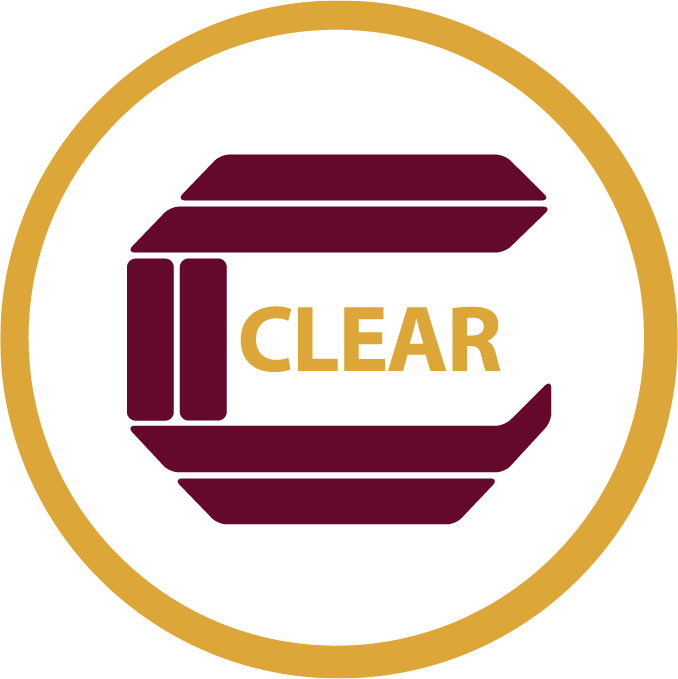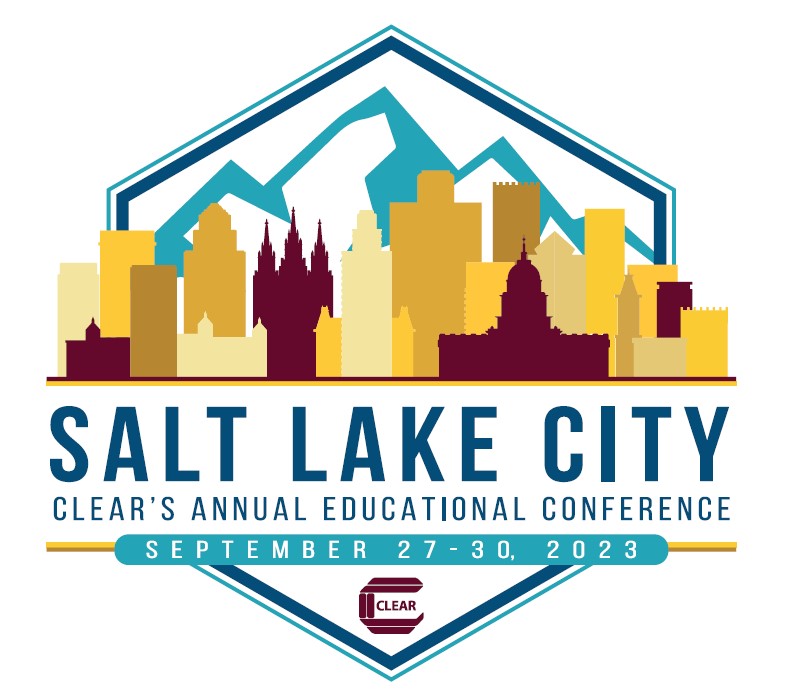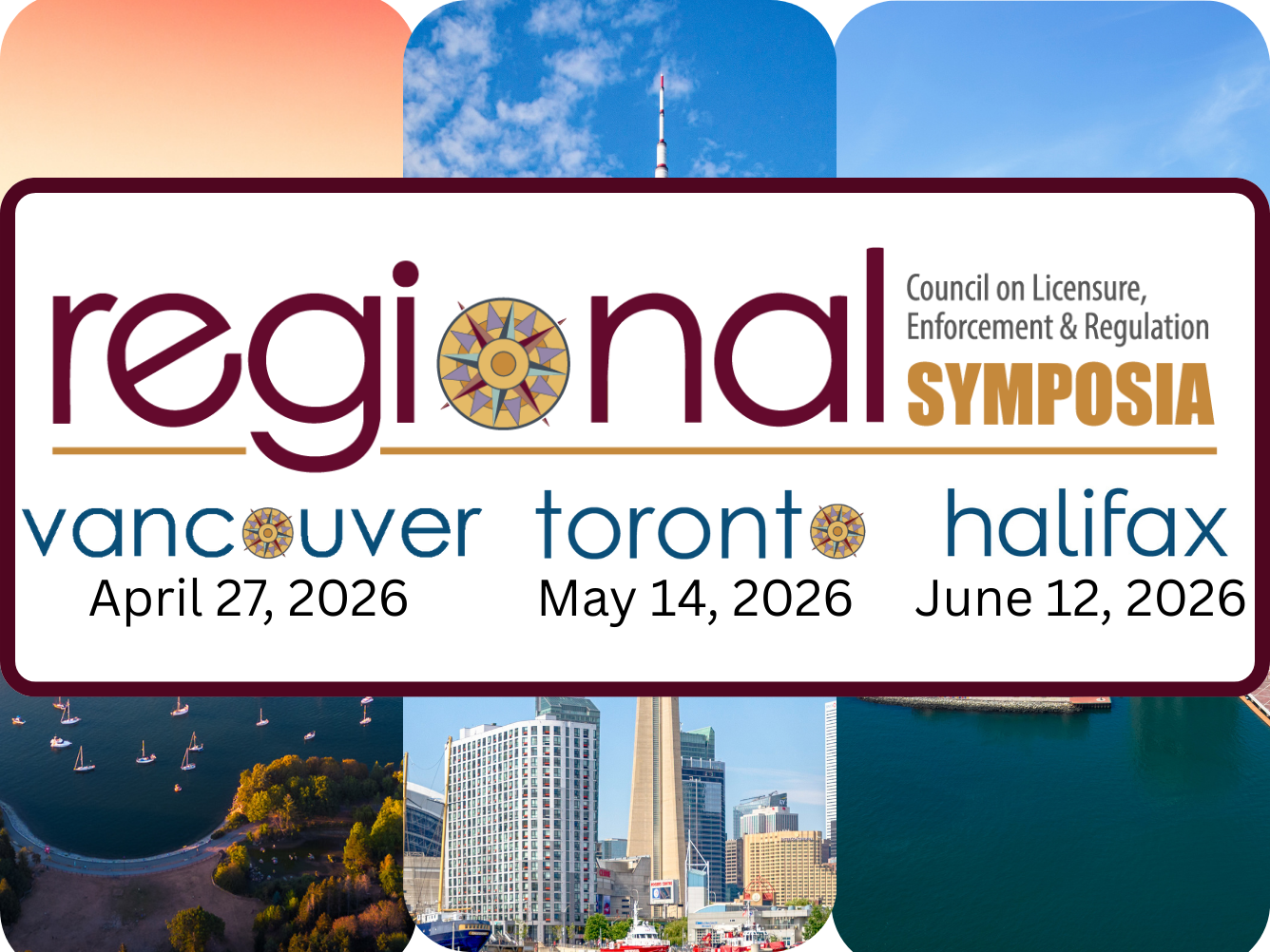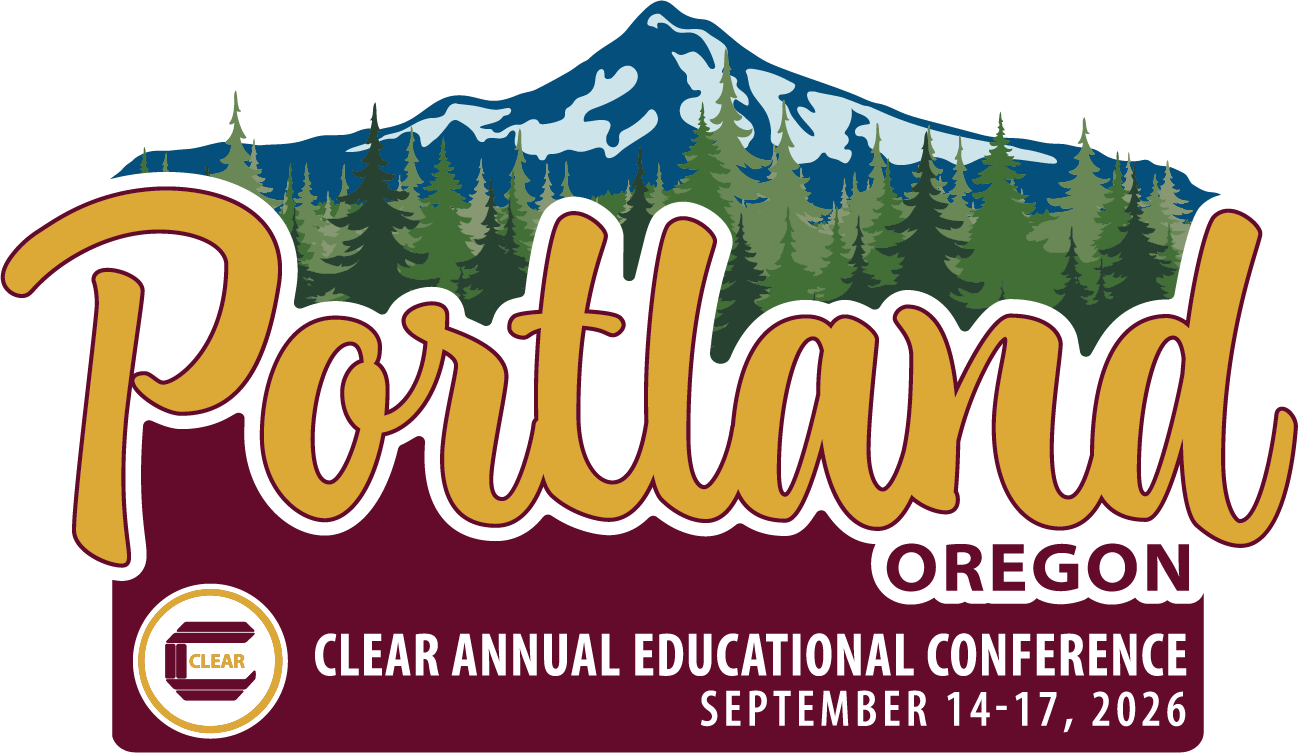Call for Posters
2023 Annual Educational Conference
The proposal window is open!
CLEAR is pleased to announce our Call for Posters for the 2023 Annual Educational Conference. Posters will be on display for the duration of the conference and will feature Q&A time with the poster author(s) on Friday, September 29.
All poster proposals must be submitted by May 17, 2023 at 11:59 PM EDT. Read below to learn more about what topics and issues are of interest to CLEAR attendees and to submit your poster proposal today.
Acceptance notifications will be sent no later than June 19, 2023. Please contact Virginia Shapland with any questions about your submission.
Before You Get Started
Frequently Asked Questions
Poster Proposal Process FAQs (click to view and download)
Topics
CLEAR always seeks a wide selection of topics from diverse jurisdictions and both health and non-health professions and occupations. We encourage proposals that present information applicable to a variety of stakeholders.
Click the category boxes below to see more suggested subtopics for this year's conference.
- Assessment of competency of licensees/New approaches to continuing education
- Addressing issues with ungovernable/difficult registrants
- Regulatory Effectiveness and Efficiency Audits
- Innovations in Quality Assurance and Improvement
- Continuing Competence Review, Audit
- Reviewing Accreditation Standards – How Often is Enough?
- When professions/industries compete: who determines competencies and standards; who regulates?
- How can we be confident that our competency programs are actually reflecting registrant competence?
- Differing approaches to continuing competence/maintenance of competency
- Remediation evaluation – How do you know it is effective?
- Mental health / substance abuse regulatory compliance
- Embracing the positive aspects of regulatory reform
- Cultural shifts and how what is regulated is changing, e.g. cannabis and hemp regulation
- The Good, the Bad, and the Ugly of Legislation in the past Year
- Educating/Working with State Legislatures
- Anti-trust Laws and implications for Regulators
- What happens when regulatory roll back laws make no sense? How do we challenge them?
- Economic pressures driving regulation or regulatory changes
- Negative registers
- Establishment of independent oversight bodies
- Making the case for regulation using data (Educating Public, License holders and Legislators)
- Show and tell using data (telling the agency story)
- Data visualization / storytelling / creating dashboards
- Data security & privacy - Protecting your stakeholder’s information
- Use of licensing data for broader public policy issues
- Using data to inform, i.e. complaints aggregate data to inform creation of relevant CE
- General data security and active threats to data security; pre-emptive security considerations
- Online Portals – access to application/renewal information, CE, public search, public complaints filing, one-door to user profile
- Vendor/agency relationships – beyond just the contract, developing partnerships
- Remote/partially remote workforce: security, workload, supervision
- Regulation-Related Technology
- Artificial Intelligence
- Content creation utilizing Artificial Intelligence
- Electronic credentials, leveraging technology
- Data Analytics – what exactly is it saying?
- Data and regulation Impact
- Use of Data to inform decisions and risk regulation
- Which jurisdictions have e-licensing systems/data programs that actually work?
- Data ownership (e.g. demographic data)
- Navigating through GDPR
- Licensed online services and practice (telehealth)
- Unpacking different options for psychometric approaches
- Reducing barriers to licensure (reducing fees, reviewing laws related to criminal records, eliminating Citizenship or SSN requirements)
- Changing licensure requirements or creating alternate pathways as a way to address workforce shortages
- Licensure and freedom of speech cases, such as tour guides, diet coaches
- Impact of social media on licensure and freedom of speech cases
- Unlicensed over-the-counter health services, such as teeth-aligning, hearing aids, contact lenses
- Unlicensed practice vs. use of title (“engineer” as an example)
- Testing in Skilled Trades and Other non-healthcare areas
- Entry to Practice: Educating the soon-to-be-regulated; transition from school to work
- Scope of Practice: Healthcare practitioner scope of practice and its effect on access to care
- Engaging underserved communities
- Regulators’ responsibility toward public education and outreach
- Communication of practice standards
- Defining your organization’s message and communicating it effectively
- Across different professions, how to create interprofessional collaboration?
- Harnessing Social Media
- How do regulators promote good working relationships with licensees?
- Consumer protection from the view of the intended recipient
- The intersection of politics and regulation; the impact of politics on regulation
- The future of regulation/the role of regulation in the future
- Next steps in Diversity, Equity, and Inclusion: examples of DEI work done by regulators
- What has and hasn't worked in DEI intitiatives
- Lessons learned from the pandemic
- Unconscious Bias
- Systemic Racism
- Labor mobility/labor shortages
- Conscientious objection, denying services based on seriously held religious belief
- Investigating allegations of sexual misconduct
- Jurisdictions regulating new professions, such as behavior analysts, art therapists, music therapists, Genetic counselors, certified professional midwives
- Prescription Monitoring Programs
Tracks
CLEAR's Annual Educational Conference is organized along four tracks of inquiry. Click the boxes below to learn more about each track.
|
Sessions that inform, educate, and inspire conference attendees to implement innovative solutions regarding legislation, policy, administrative leadership, and daily operations. Sessions that focus on operational efficiency, equity, technology, cyber and physical security, updates to laws, governing policies and procedures, and media and stakeholder relations are in high demand. |
Sessions that educate in the professional discipline process and enhance knowledge and skills for better on-the-job performance by participants in the professional discipline process. The professional discipline process includes the entire process by which the state/province/government entity (1) receives information pertaining to possible violations of law by a member of a regulated group (or a person who purports to be a member of a regulated group), (2) investigates the information received, and (3) makes an appropriate case disposition. |
|
Sessions that allow those involved in both the initial licensure/ registration / credentialing process, and the continuing competence and professional development area, to discuss the issues, trends and challenges they face outside of the testing and examination realm. Topics may include defining competencies within a scope of practice, setting standards of qualification (education, training, experience), implementing quality assurance mechanisms, establishing equivalencies, assessing practical experience, accrediting education providers, exploring artificial barriers to practice, labor mobility (national and international), appeals processes, when should the bar be raised or lowered, re-entry to practice scenarios, etc. |
Sessions designed to inform, provoke discussion, and explore new topics related to all aspects of certification and licensing examinations. These topics may include such items as: job analysis, test development and validation, standard setting, test administration, scoring and analysis, score reporting, and examination challenges/defense. |
Submitting Your Proposal
Please be sure to have the following information ready to submit:
- Contact information for (Co)Authors
- Please note if you do not have all authors identified, you are still able to submit a proposal.
- Please note if you do not have all authors identified, you are still able to submit a proposal.
- Proposed Poster Title
- Track
- Proposal (no more than 500 words). Please include the following components: Learning Outcome, Innovative (new ideas or approaches), Evidence-Based (relevant research and data that demonstrates the quality of the content), and Practicality (explain practices or resources that attendees will be able to take home and use – such as handouts, website links for further information or specific actionable strategies). Include major themes, challenges, lessons learned and general applicability for other regulatory bodies. Successful proposals will be broadly applicable in scope with international elements that fit diverse occupations and needs.
- A minimum of three learning objectives. Each objective should be measurable.
- NOTE: The proposal portal allows you to save progress and edit your proposal up to the submission deadline.



